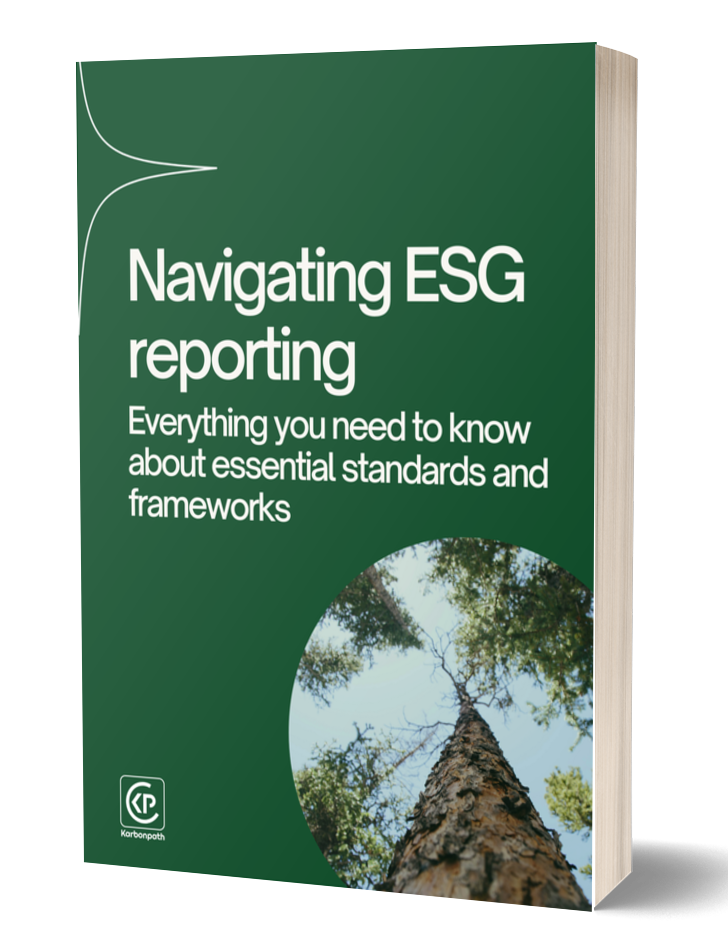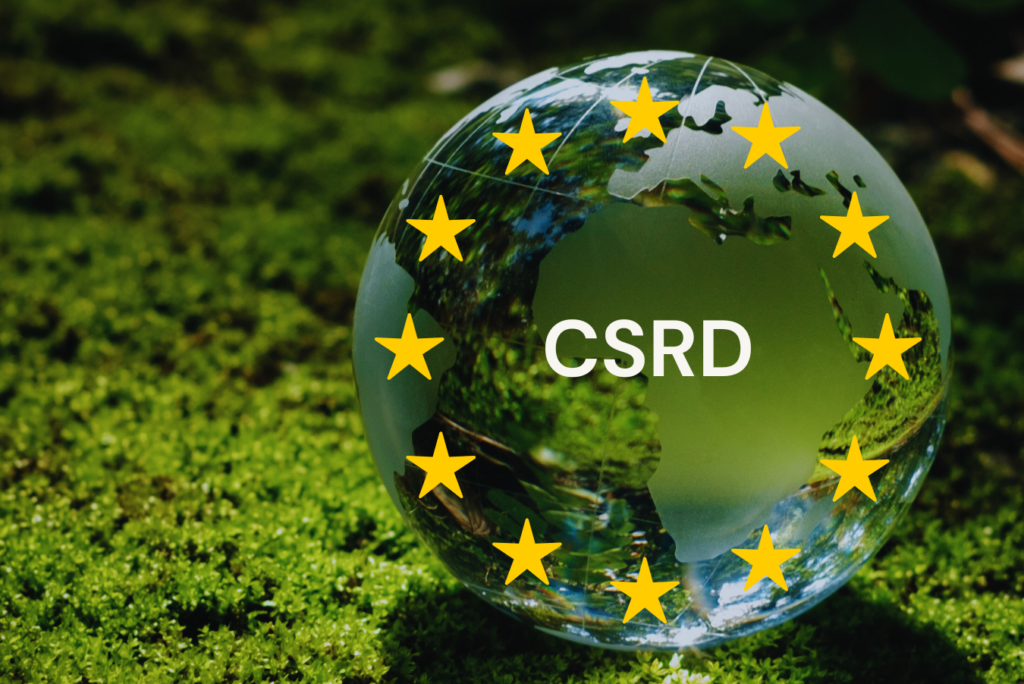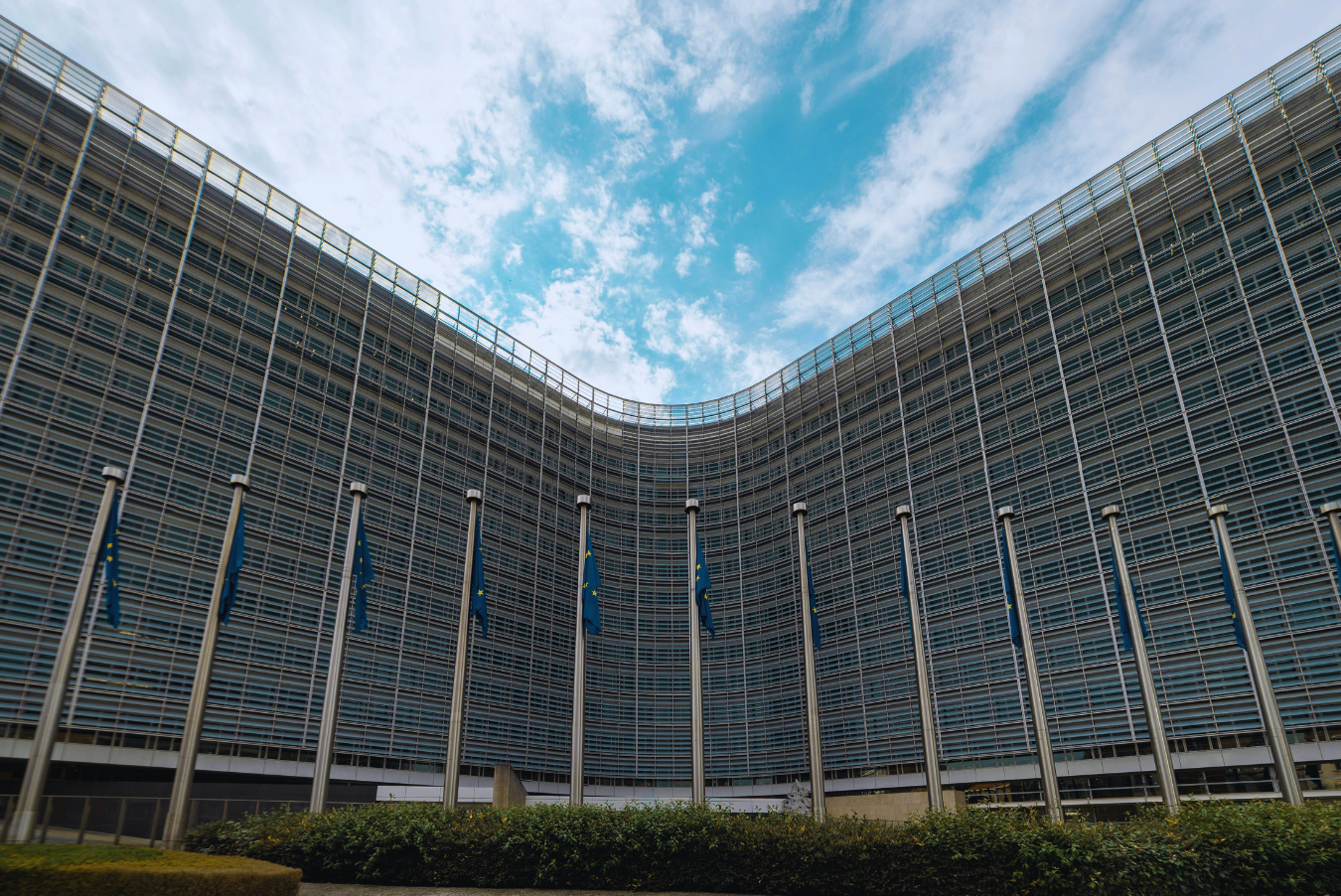The Omnibus legislation is at the heart of ongoing discussions surrounding European regulations. These initiatives aim to simplify and harmonize existing rules while enhancing the competitiveness and sustainability of businesses. This analysis explores the implications of these legislations for businesses, shedding light on both the upcoming opportunities and challenges.

Navigating ESG Reporting : a complete guide
Download our eBook, and learn how to choose the right framework that aligns with your corporate goals and regulatory obligations, ensuring your business is not only compliant but also a leader in sustainability.
What is the Omnibus Legislation?
In the context of European legislation, “omnibus” refers to a bill that seeks to amend several legal texts at once, consolidating them under a single piece of legislation. The primary goal of omnibus laws is to simplify or adjust existing measures to reduce the administrative burden on the stakeholders involved.
The Omnibus Law, set to be unveiled on February 26, 2025, by the European Commission, addresses regulations tied to the European Green Deal. This initiative falls within the framework of the Budapest Declaration on the European Competitiveness Pact, adopted on November 8, 2024, by EU leaders. The declaration aims to improve Europe’s resilience and competitiveness amidst a complex geopolitical and economic landscape. It calls for a significant simplification of regulations, particularly by reducing reporting obligations. However, the precise details of this legislation remain unknown.
What Regulations Are Targeted by the Omnibus Law?
Currently, we know that the Omnibus Law will focus on three key directives of the European Green Deal:
- Corporate Sustainability Reporting Directive (CSRD)
The CSRD expands corporate transparency requirements around ESG (Environmental, Social, Governance) factors and broadens the number of companies that must adhere to these obligations. - Corporate Sustainability Due Diligence (CSDDD)
This European duty requires businesses to identify, prevent, and mitigate negative impacts of their activities across the value chain, including environmental and human rights concerns. It promotes corporate accountability and establishes due diligence processes within supply chains. - EU Green Taxonomy
The Green Taxonomy classifies economic activities as “sustainable” to direct investments toward projects and companies that contribute to climate action and environmental protection. Companies must align their investment strategies and sustainability reports with this classification to ensure their activities are consistent with the EU’s environmental goals.

Omnibus: Maintaining Climate Goals While Easing Administrative Burden for Businesses
The Budapest Declaration and the Omnibus Proposal are responses to concerns regarding business competitiveness. Specifically, the focus is on excessive and complex administrative requirements that could hinder Europe’s competitiveness against the U.S. and China. In his report on competitiveness, Mario Draghi advocated for the “simplification” of social and environmental regulations, voicing concerns about regulatory burdens, especially for SMEs. This term has raised concerns among sustainability and environmental protection advocates, fearing potential backslides in social and environmental legislations.
In November 2024, Ursula von der Leyen clarified that the Omnibus Bill aims to streamline regulations without weakening them. This initiative seeks to uphold climate goals while lightening the administrative load for businesses. According to Von der Leyen, the aim is to eliminate redundancies and make the implementation of regulations more efficient without compromising their substance. This distinction is crucial, as it shows that the Commission does not intend to simplify regulations at the expense of their effectiveness. However, it’s possible that pressure from certain stakeholders may affect this direction.
Moreover, the Omnibus legislation is not without its critics. Many large companies have opposed it, including 12 global corporations that signed a letter to the EU expressing concerns that revising sustainability regulations could undermine their ongoing efforts and investments. These companies argue that pioneering firms that have already invested heavily may be disadvantaged, and emphasize that regulatory predictability is crucial for planning future actions. They urge the Commission to provide clearer directives to assist with implementation.
What does the Omnibus proposal contain?
Proposed changes to the CSRD
Reporting scope: The threshold would be raised to include only companies with more than 1,000 employees and €50 million in revenue or a balance sheet exceeding €25 million. This would reduce by 80% the number of companies subject to the CSRD.
Two-year delay for the second wave: The European Commission proposes a two-year delay for the reporting obligation for companies outside the proposed scope. If the proposed change to the scope is approved, companies with fewer than 1,000 employees would be completely excluded from the application.
Value chain limit: Companies with fewer than 1,000 employees, excluded from the CSRD, would be able to follow a voluntary reporting standard based on EFRAG’s VSME. This standard will serve as protection by limiting the information large companies and banks subject to the CSRD can request from them.
Removal of sectoral standards: The Commission will no longer have the power to adopt sector-specific ESRS standards.
Removal of reasonable assurance requirements: The Commission will no longer have the ability to propose moving from a limited assurance requirement to a reasonable assurance requirement.
Reduction in the number of data points: The Commission will revise the European sustainability reporting standards (ESRS) to reduce the number of data points and clarify certain provisions.
What about companies in the second wave, subject to CSRD in 2026?
In the 20 countries where the CSRD has been transposed, the CSRD remains mandatory until the proposal is definitively adopted. Companies in these countries, including France, must continue their reporting process. However, the committee has asked the legislators for a swift decision on this point to provide greater clarity for second-wave companies.
Proposed changes to taxonomy
Here are the main changes proposed by the Omnibus proposal on taxonomy:
Scope of application: For large companies with more than 1,000 employees and net sales of less than €450 million, the Omnibus proposal provides for voluntary taxonomy reporting, reducing the number of companies required to declare their alignment with the taxonomy.
Reporting models: the Commission proposes to simplify reporting models, reducing the number of data points by almost 70%.
Simplification of DNSH criteria: The Commission is also seeking views on two alternative options for simplifying the most complex “Do no significant harm” (DNSH) criteria relating to pollution prevention and the control of chemical substances applicable to all economic sectors under the European taxonomy. A public consultation invites stakeholders to give their views on these two options.
Proposed changes to the CSDDD
Here are the main changes proposed by the Omnibus proposal on duty of care:
Extended deadlines: The Commission proposes to postpone transposition to July 26, 2027, with application for large companies postponed to July 26, 2028.
Easing of assessment obligations: Companies will only be required to carry out full due diligence on their entire indirect value chain if they have plausible information indicating actual or potential negative impacts.
Simplification of requirements: the frequency of periodic assessments will be increased from one year to five, with an obligation to update only if there is doubt about the effectiveness of the measures. Removal of the obligation to break off commercial relations as a last resort.
Reduction of the cascade effect: large companies will only be able to request the information specified in the voluntary CSRD standard from SMEs and ETIs (-500 employees), unless there is a proven need to do so.
Alignment with national civil liability regimes: Removal of harmonized civil liability conditions at EU level, leaving each member state to define its own rules.
Other adjustments : Alignment of climate transition plan requirements with the CSRD, increased harmonization of due diligence obligations.

CSRD and Double Materiality : Pillars of the Sustainable Transformation?
Often seen merely as a reporting obligation, the CSRD is in fact a fundamental pillar of corporate sustainable transformation. Sustainability reporting is an essential step toward improving corporate transparency and demonstrating efforts in sustainability. It also acts as a strategic guide for advancing business model transformations and developing new competitiveness models. The CSRD should be viewed as a tool for profound transformation rather than a mere administrative requirement.
Difference Between Omnibus Regulation and Omnibus Directive?
An omnibus law can take two different legislative forms: regulation or directive.
- Omnibus Regulation: Adopted by the European Council, it modifies existing regulations and applies directly in the law of EU countries.
- Omnibus Directive: Modifies existing directives and must be adopted by the Council, Parliament, and Commission. Once adopted at the EU level, it must be transposed into national laws.
How Can Karbonpath Help?
Amidst growing sustainability and ESG compliance demands, Karbonpath helps simplify and optimize your processes. We provide a centralized tool to manage all your ESG data, produce compliant reports, and strategically drive your ESG performance.
We aim to help you turn ESG management into a strategic lever by offering advanced automation, traceability, and data quality features. This allows you to meet regulatory requirements while reducing effort at each step of the process. In other words, we help you focus on what truly matters—driving your ESG performance.
Specifically, we help you to:
- Save Time: Automating tedious processes allows you to allocate resources to strategic actions.
- Ensure Compliance: Your reports adhere to the most stringent standards with integrated quality controls and complete traceability.
- Optimize ESG Management: Get a clear, comprehensive view to adjust your strategy in real-time and meet sustainability goals.
- Simplify Collaboration: Improve coordination with stakeholders for effective ESG project management.
The Key Technological Levers We Provide:
- Automation of data flows
- Simplified import from various internal and external sources
- Integrated data quality controls
- Use of AI as an accelerator with a “smart impact” policy for relevant data management (e.g., managing narrative data)
- Automatic interoperability between reporting formats
- Centralization of all data on a single platform to help coordinate stakeholders
Want to Learn More?
Feel free to reach out to us and speak with one of our experts.
Sources :
- https://www.novethic.fr/economie-et-social/transformation-de-leconomie/csrd-omnibus-simplification-bataille-influence-lobbies
- https://www.consilium.europa.eu/fr/press/press-releases/2024/11/08/the-budapest-declaration/
- https://www.daf-mag.fr/Thematique/finance-durable-1342/Breves/CSRD-taxonomie-verte-vers-simplification-obligations-reporting-465197.htm
- https://www.europarl.europa.eu/committees/fr/the-draghi-report-competitiveness-and-ec/product-details/20241127CHE12786
- https://www.euractiv.com/section/politics/news/exclusive-competitiveness-compass-to-call-for-unprecedented-cutting-of-red-tape/

